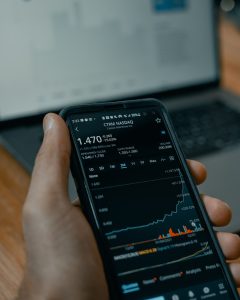Forex or foreign exchange is the market where currencies are traded. It is a decentralized market, and there is no central exchange. In forex, currencies are traded in pairs, and the value of one currency is compared to another. Forex plays a crucial role in the global economy. It affects many aspects of the economy, including trade, inflation, and interest rates. In this article, we will discuss how forex affects the economy.
Trade
Forex affects the economy by influencing international trade. Countries that export goods and services benefit from a weaker currency. When the currency is weak, the price of the exported goods and services is cheaper for foreign buyers. This means that more foreign buyers will be interested in buying the goods and services, leading to an increase in demand. The increase in demand will, in turn, lead to an increase in production and employment.
On the other hand, countries that import goods and services benefit from a stronger currency. When the currency is strong, the price of imported goods and services is cheaper. This means that the country can import more goods and services with the same amount of money. This leads to an increase in consumption and hence, an increase in the standard of living.
Inflation
Forex affects the economy by influencing inflation. Inflation is the rate at which the general level of prices for goods and services is rising. A weak currency can lead to inflation. When the currency is weak, the prices of imported goods and services increase. This leads to an increase in the cost of production, which leads to an increase in prices. This, in turn, leads to inflation.
On the other hand, a strong currency can lead to deflation. When the currency is strong, the prices of imported goods and services decrease. This leads to a decrease in the cost of production, which leads to a decrease in prices. This, in turn, leads to deflation.
Interest Rates
Forex affects the economy by influencing interest rates. Interest rates are the cost of borrowing money. A weak currency can lead to higher interest rates. When the currency is weak, the central bank may increase interest rates to attract foreign investment. This will lead to an increase in the value of the currency.
On the other hand, a strong currency can lead to lower interest rates. When the currency is strong, the central bank may decrease interest rates to discourage foreign investment. This will lead to a decrease in the value of the currency.
Conclusion
In conclusion, forex affects the economy by influencing trade, inflation, and interest rates. The value of a currency is determined by the supply and demand for that currency. Changes in the value of a currency can have significant impacts on the economy. A weak currency can lead to an increase in exports, inflation, and higher interest rates. A strong currency can lead to an increase in imports, deflation, and lower interest rates. It is important to understand the role of forex in the economy to make informed decisions.





